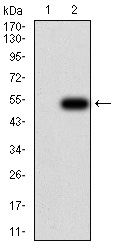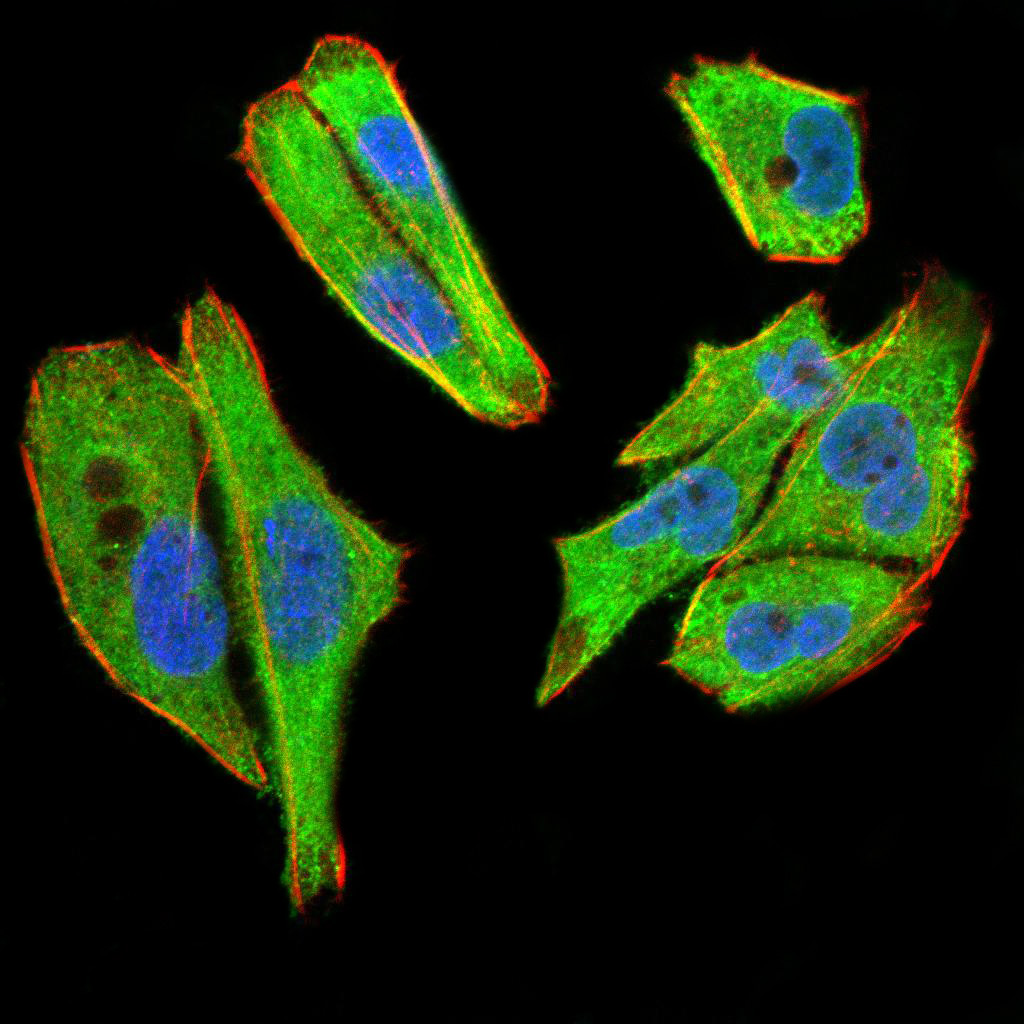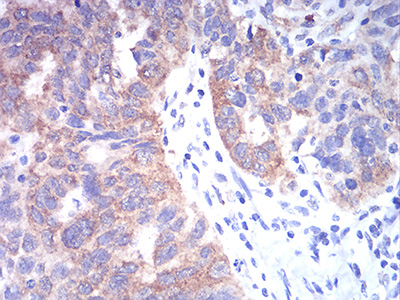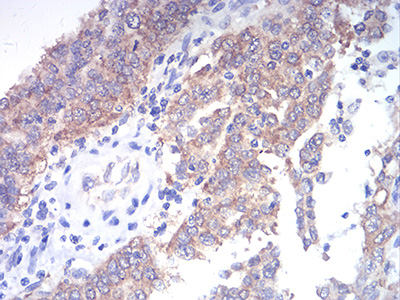-
Product Name
Anti-TBCC antibody
- Documents
-
Description
Mouse monoclonal antibody to TBCC
-
Tested applications
WB, IHC-P, ICC
-
Species reactivity
Human
-
Alternative names
CFC antibody
-
Isotype
Mouse IgG1
-
Preparation
This antigen of this antibody was recombinant protein
-
Clonality
Monoclonal
-
Formulation
Liquid, 1*TBS (pH7.4), 1%BSA, 40%Glycerol. Preservative: 0.05% Sodium Azide.
-
Storage instructions
Store at +4℃ after thawing. Aliquot store at -20℃ or -80℃. Avoid repeated freeze / thaw cycles.
-
Applications
WB: 1:500-1:2,000
ICC: 1:50-1:200
IHC-P: 1:50-1:200
-
Validations

Fig1: Western blot analysis of TBCC on human TBCC recombinant protein using anti-TBCC antibody at 1/1,000 dilution.

Fig2: Western blot analysis of TBCC on HEK293 (1) and TBCC-hIgGFc transfected HEK293 (2) cell lysate using anti-TBCC antibody at 1/1,000 dilution.

Fig3: ICC staining TBCC (green) and Actin filaments (red) in Hela cells. The nuclear counter stain is DAPI (blue). Cells were fixed in paraformaldehyde, permeabilised with 0.25% Triton X100/PBS.

Fig4: Immunohistochemical analysis of paraffin-embedded human ovarian cancer tissue using anti-TBCC antibody. Counter stained with hematoxylin.

Fig5: Immunohistochemical analysis of paraffin-embedded human endometrial cancer tissue using anti-TBCC antibody. Counter stained with hematoxylin.
- Background
-
References
- Hage-Sleiman R et al. Tubulin binding cofactor C (TBCC) suppresses tumor growth and enhances chemosensitivity in human breast cancer cells. BMC Cancer 10:135 (2010).
- Si F et al. Study on H2O2/TAED and H2O2/TBCC bleaching mechanism related to hydroxyl radical with a fluorescent probe. Carbohydr Polym 103:581-6 (2014).
Related Products / Services
Please note: All products are "FOR RESEARCH USE ONLY AND ARE NOT INTENDED FOR DIAGNOSTIC OR THERAPEUTIC USE"
